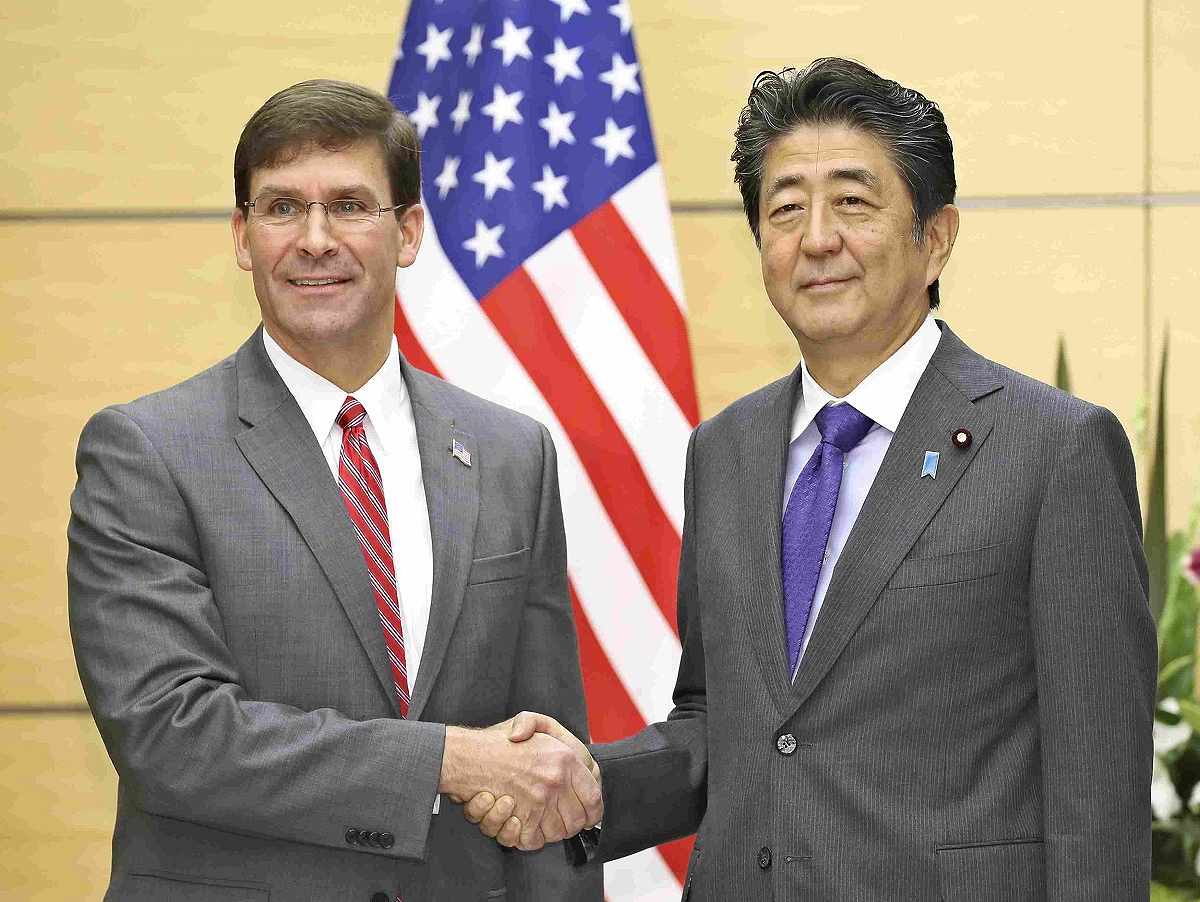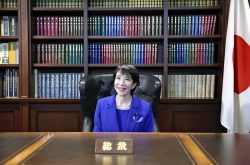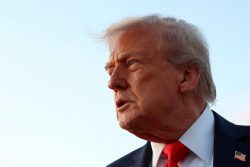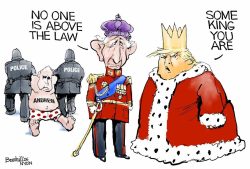Former U.S. Defense Secretary Mark Esper Voices Concerns Over a Trump Second Term; New Administration Would Likely Be Isolationist
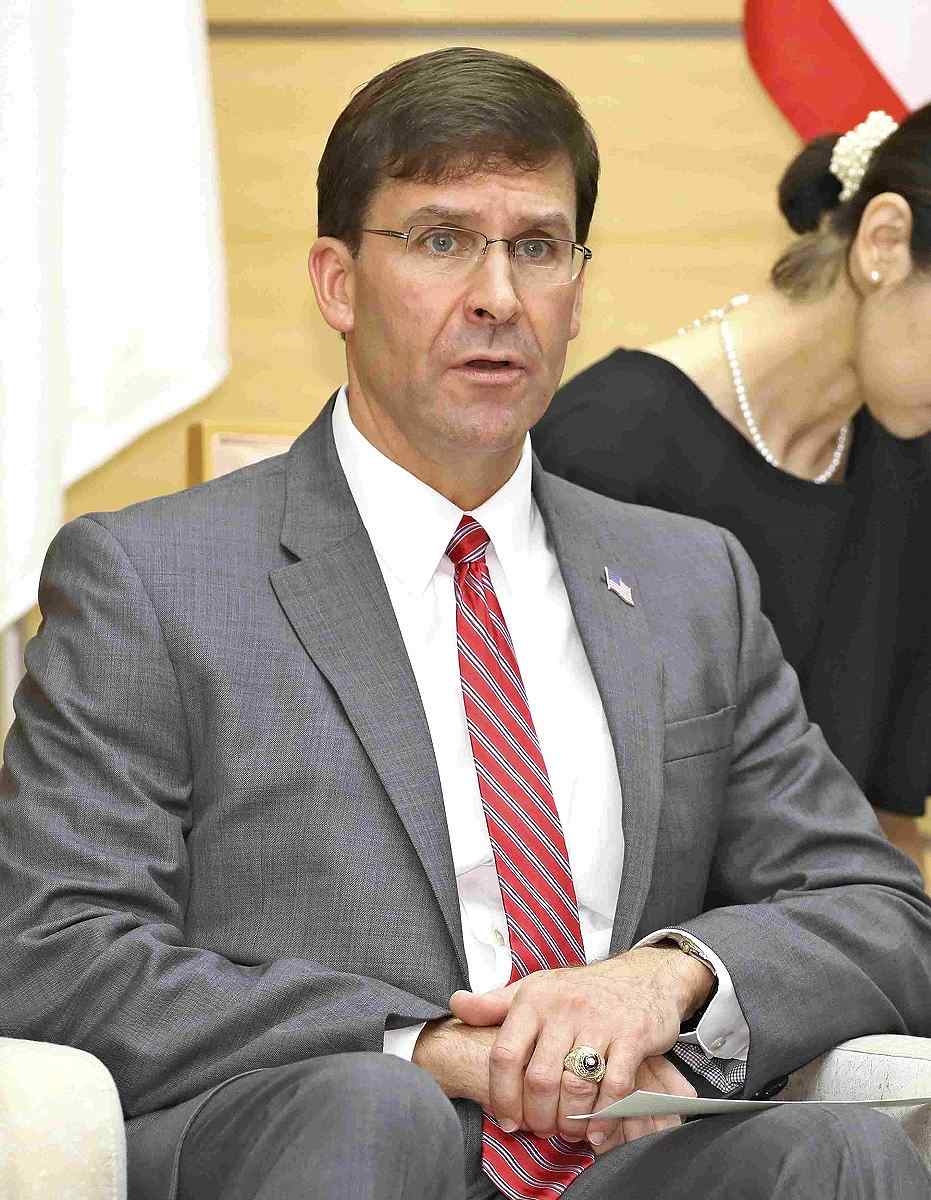
Former U.S. Defense Secretary Mark Esper
6:00 JST, March 16, 2024
Former U.S. Defense Secretary Mark Esper, who served in the administration of former U.S. President Donald Trump, shared his concerns about a possible second Trump administration in an interview with The Yomiuri Shimbun. The following is excerpted from the interview.
***
One specific concern regarding a Trump second term is how he has said it will be about retribution. I’m concerned that he’ll continue to chip away at our democracy, at our institutions, at the established norms and behaviors that make our republic strong. This is particularly concerning because a second term would also be Trump’s last term. The prospect of reelection won’t restrain him the way it did during his first four years.
He will take a harder line toward allies and partners, beginning with Ukraine, and then likely NATO. If all funding for Ukraine is not cut off by time he enters office in January of 2025, then I think he will move quickly to end U.S. assistance, and then he will probably turn his sights on NATO. And if there’s any metric to gauge who he will target and how he will measure success, it will be which countries are contributing 2% or more of their GDP toward defense.
At some point as well, he is going to look across the Pacific at allies such as South Korea and Japan, and ask the same questions about defense spending as a share of GDP. I think the good news is that Prime Minister [Fumio] Kishida deserves a lot of credit for increasing defense spending, which is supposed to reach 2% by 2027 if I recall correctly. Trump may or may not say that’s good enough or fast enough though.
He will also assess our NATO and Indo-Pacific allies when it comes to host nation support — that is, how much are they paying to host U.S. troops, to offset the cost of America forward deploying our forces to their country. It is important to note, by the way, that no country in the world hosts more U.S. troops than Japan. So, this could be a particular focus for him and his staff.
Additionally, Japan has the fourth largest economy in the world, so he may put pressure on Tokyo to increase host nation support and commit to buying more arms from the U.S., the latter being another factor that resonates with him.
A big difference from the first administration is, there were people like me and others who consider ourselves internationalists. My concern is that the litmus test for people coming into a second Trump administration will be loyalty first and foremost. As such, I suspect these people will share Trump’s views on most things, and that they will take a more isolationist view of America’s role in the world.
When you look across the Indo-Pacific, you see a situation similar to what is happening in Europe and the Middle East: the threats are growing. In Asia, China is more of a threat today than it was a few years ago. Given these trends, many of us in the United States ask ourselves, why aren’t our friends and allies spending more on defense? Frankly, it looks like in many cases that countries are free riding on America’s security umbrella. That’s what irritates and frustrates many in the United States. And that really gets to what Trump is talking about, and doing so in a way that resonates with many Americans.
I’m not willing to walk away from our allies and partners. But Trump is. So, I think to the extent that some of our friends and allies can make significant changes in their defense outlook, spending, and policies, like Japan is doing, that will have a big impact in the United States.
With regard to Russia and Ukraine, if Trump gets reelected and decides not to back Ukraine, I don’t think that will lead to a good outcome. What that does is basically hand over a sovereign country to Vladimir Putin, which risks whetting his appetite to go further. At the same time, you are sending a bad signal to China that maybe the United States won’t help defend Taiwan, and maybe we won’t help defend the Philippines, Korea, or Japan.
[Former U.S. President] Ronald Reagan’s core views centered around peace through strength and the importance of American leadership of the free world, which of course included helping defend our friends and allies against aggression. I think we can and must secure our border. We must also address immigration reform. But at the same time, we should support our friends and allies. This is not an “either/or” matter; we can do both.
This interview was conducted by Yomiuri Shimbun Staff Writers Hiroshi Tajima and Riley Martinez.
Mark Esper
Esper, 59, is a graduate of the United States Military Academy. He served in the army during the Gulf War. He became the secretary of the army in November 2017 during the administration of former U.S. President Donald Trump and served as the defense secretary from July 2019 to November 2020.
Top Articles in World
-

Israeli Ambassador to Japan Speaks about Japan’s Role in the Reconstruction of Gaza
-

Videos Plagiarized, Reposted with False Subtitles Claiming ‘Ryukyu Belongs to China’; Anti-China False Information Also Posted in Japan
-

North Korea Possibly Launches Ballistic Missile
-

Chinese Embassy in Japan Reiterates Call for Chinese People to Refrain from Traveling to Japan; Call Comes in Wake of ¥400 Mil. Robbery
-

Pentagon Foresees ‘More Limited’ Role in Deterring North Korea
JN ACCESS RANKING
-

Japan PM Takaichi’s Cabinet Resigns en Masse
-

Japan Institute to Use Domestic Commercial Optical Lattice Clock to Set Japan Standard Time
-

Israeli Ambassador to Japan Speaks about Japan’s Role in the Reconstruction of Gaza
-

Man Infected with Measles Reportedly Dined at Restaurant in Tokyo Station
-

Man Infected with Measles May Have Come in Contact with Many People in Tokyo, Went to Store, Restaurant Around When Symptoms Emerged
